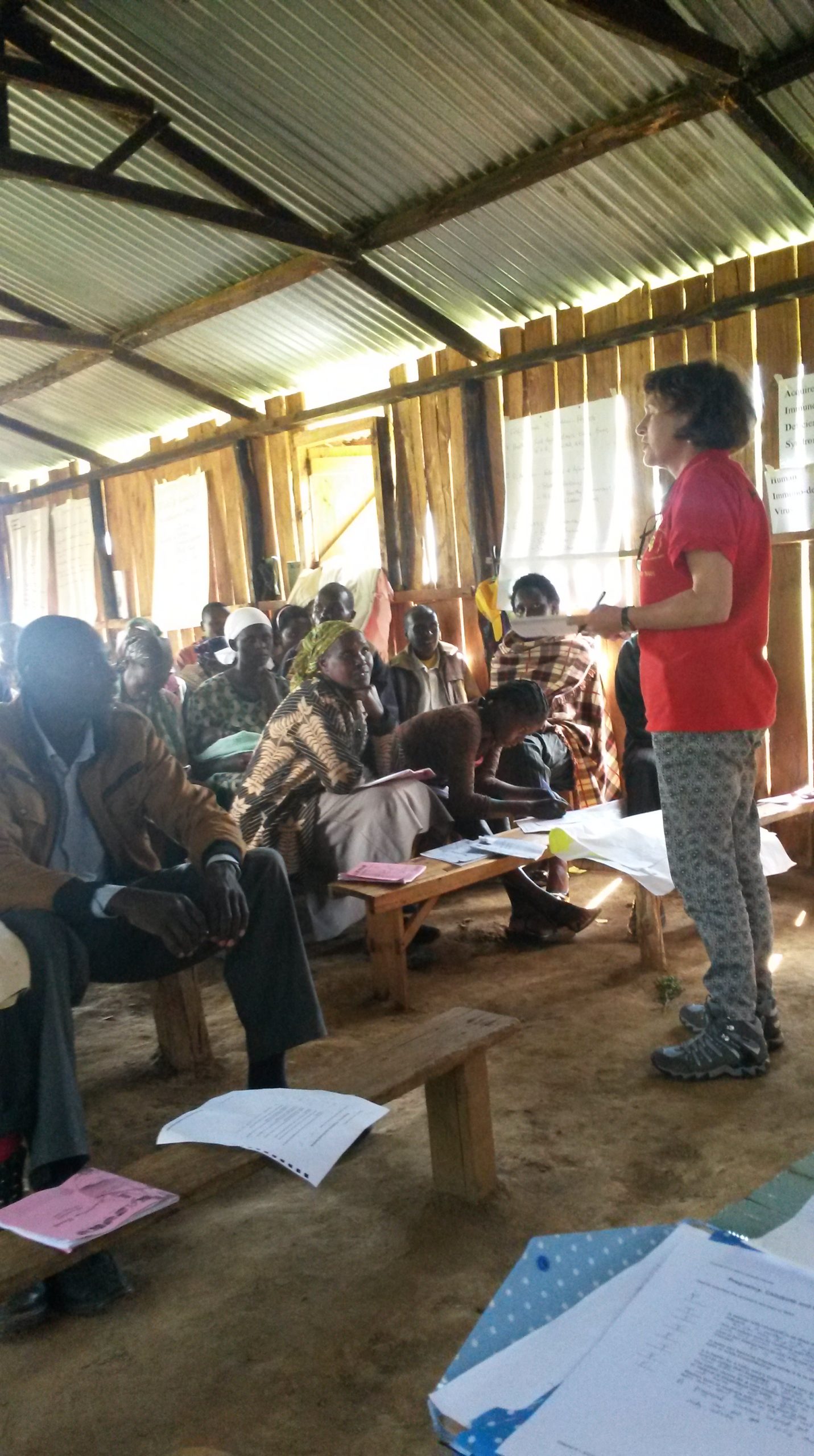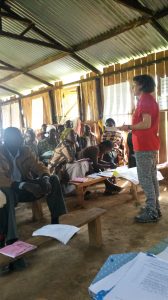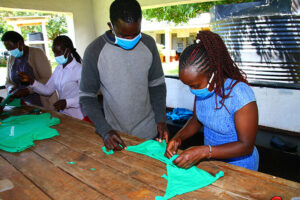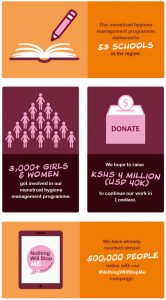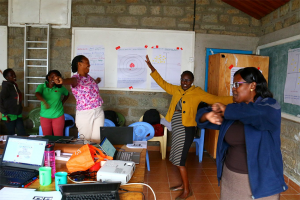Twice a year a group of volunteers from Ireland go out to Kenya to support the community and our team working in Londiani.
Every experience is unique and the stories from our volunteers really bring to life the work we do and the impact your donations have. Here is Lynne’s Kenya diary.
Learning about lifeskills
My fellow Harambee volunteer Aoife O’Hanlon and I arrived at the newly built Pentecostal church in the picturesque village of Kapsenda at 9am Monday morning along with staff members Richard Kirui and Simon Koskei to deliver a lifeskills (peer education) course.
I must admit I was expecting to be greeted by a participant or at least a member of the local community. Not so! We arrived to an empty church and not a person in sight. Richard was however confident that we were in the right place and we started to unpack our materials. Within a few minutes, people had arrived to greet us and bring us a settee with cushions. We were clearly honoured guests as the only other seats in the church were low narrow wooden benches. The floor is simply compacted earth – very uneven in places – and the walls are constructed of wooden planks that do not meet and there is a tin roof. There is no electricity or running water in the village.
By 10am, we still had no participants! Even Richard and Simon, who are well used to “Kenya” time were getting a bit concerned but eventually people started to arrive and we began and others joined throughout the morning. Our group was made up of about 30 women of all ages from teenagers to grandmothers and about eight men, also of varying ages. We began with a chorus, a prayer and a bible reading as we did every day. Ground rules were agreed and leaders were nominated from the group to act as spiritual, welfare and energiser leaders and a time-keeper was nominated to tell us when it was time for chai and bread and lunch.
Once we got going, the participants fully involved themselves with the first topic – communication and values. One of the more controversial subjects was the equality of men and women. The men and many of the women (especially the older ones) initially said that women did not have equality and this is part of their culture. After discussion, many changed their opinions (including the pastor of the church) and agreed that men and women have different roles but are of equal status.
The pattern was the same throughout the week – the participants engaged in every topic including controversial subjects such as HIV/AIDS, sexual relationships and reproduction. They were not put off by the fact that every word Aoife and I said had to be translated by Richard or Simon and visa/versa to hear their contributions. We had to speak clearly to be heard over the noise of the chickens and cows outside. We were regularly joined by the chickens inside too – along with a chicken! As there is no electricity all information is written on flipchart paper sheets which are then stuck on the walls for the week. The difficulty in this venue was that the walls are open so the constant breeze blowing through the building regularly removed the flipcharts either partially or completely from the walls.
These minor inconveniences did not distract the participants who were so keen to learn and so clearly appreciative of the opportunity offered to them by Friends of Londiani. Every day we received a warm welcome and they were particularly excited to have “mzungus” in their midst for the week. Aoife and I were in constant demand to have our photograph taken with them, both as individuals and as a group, especially on the last day when we learned what it must feel like to be a Hollywood “A lister”!
Asante Sana – Thank you very much
The week in Kapsenda was a special one and I feel privileged to have had the chance to meet and work with these people who have so little and have such hard lives compared to those of us lucky enough to have been born in Ireland but yet they appear to be happier.
To Richard and Simon for their support in guiding us through the customs and culture and for being our translators – asante sana.
Lynne Pasley
Harambee July 2016

